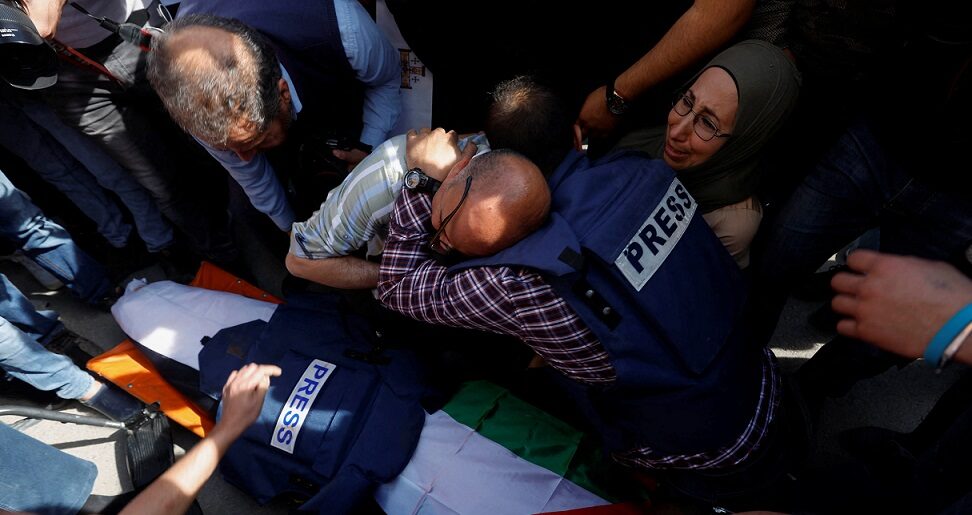African journalists, under the coalition African Journalists Against Genocide (AJAG), have strongly condemned the killing of their Palestinian colleagues in Gaza, describing it as intentional and deliberate targeting by Israel.
This condemnation comes amidst widespread international outcry and reports of a significant number of journalist fatalities in the region.
AJAG, founded by Nigerian broadcast journalist Ireti Bakare-Yusuf and comprising media personnel from over 20 African countries, stated that over 250 journalists have been killed in Gaza since October 2023, making it the deadliest period for journalists in the 21st century.
This figure is higher than reports from other organizations, with UNESCO reporting at least 62 journalists and media workers killed in the line of duty in Palestine since October 2023, excluding deaths unrelated to their work, while the OHCHR reports at least 242 Palestinian journalists killed in the same timeframe.
Other sources indicate that Israel has killed more than 190 journalists since October 7, 2023, with the Committee to Protect Journalists (CPJ) believing that at least 26 of them were deliberately targeted.
The coalition accused Israel of preventing almost all international journalists from entering Gaza, forcing the world to rely on Palestinian journalists for information on the humanitarian situation. AJAG views the targeting of these journalists as a clear strategy by the Israeli state to suppress the truth and silence media.
They emphasize that reporting on alleged war crimes is not a crime, but the killing of journalists is, and demand accountability under international law, calling for sanctions against Israel similar to those applied to apartheid South Africa.
The United Nations Educational, Scientific and Cultural Organization (UNESCO) has also condemned the killing of journalists in Palestine, specifically highlighting the targeted killing of six journalists by an Israeli drone on August 10.
UNESCO Director-General Audrey Azoulay called for a thorough and transparent investigation into these deaths. Five of the six journalists worked for Al Jazeera, and they were reportedly killed by an Israeli attack on a media tent near Al-Shifa Hospital in Gaza City.
Israel has alleged that one of the killed journalists, Anas Al-Sharif, was a Hamas operative, a claim strongly denied by Al Jazeera, which described the attack as an “assassination” and a “blatant and premeditated attack on press freedom”.
UN Human Rights Council-appointed independent experts have denounced Israeli military spokespersons’ threats and accusations against Al-Sharif as an attempt to endanger his life and silence his reporting.
Journalists and activists worldwide have held protests and vigils in solidarity with Palestinian journalists.These demonstrations, held in cities like Cape Town, Manila, London, and Tel Aviv, call for international media access to Gaza and an end to the conflict.
South African journalists, in particular, have drawn parallels between the current situation and the apartheid era, with some condemning local publications for perceived biased narratives. The deliberate targeting of journalists, who are civilians under international law, is considered a war crime.



